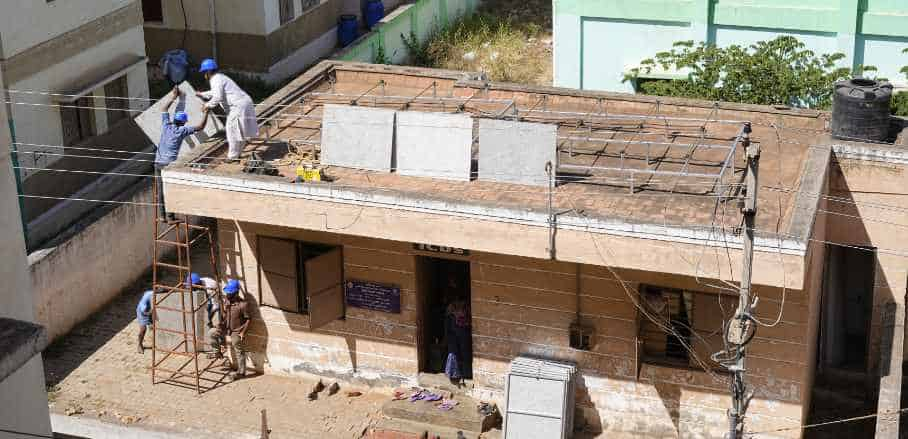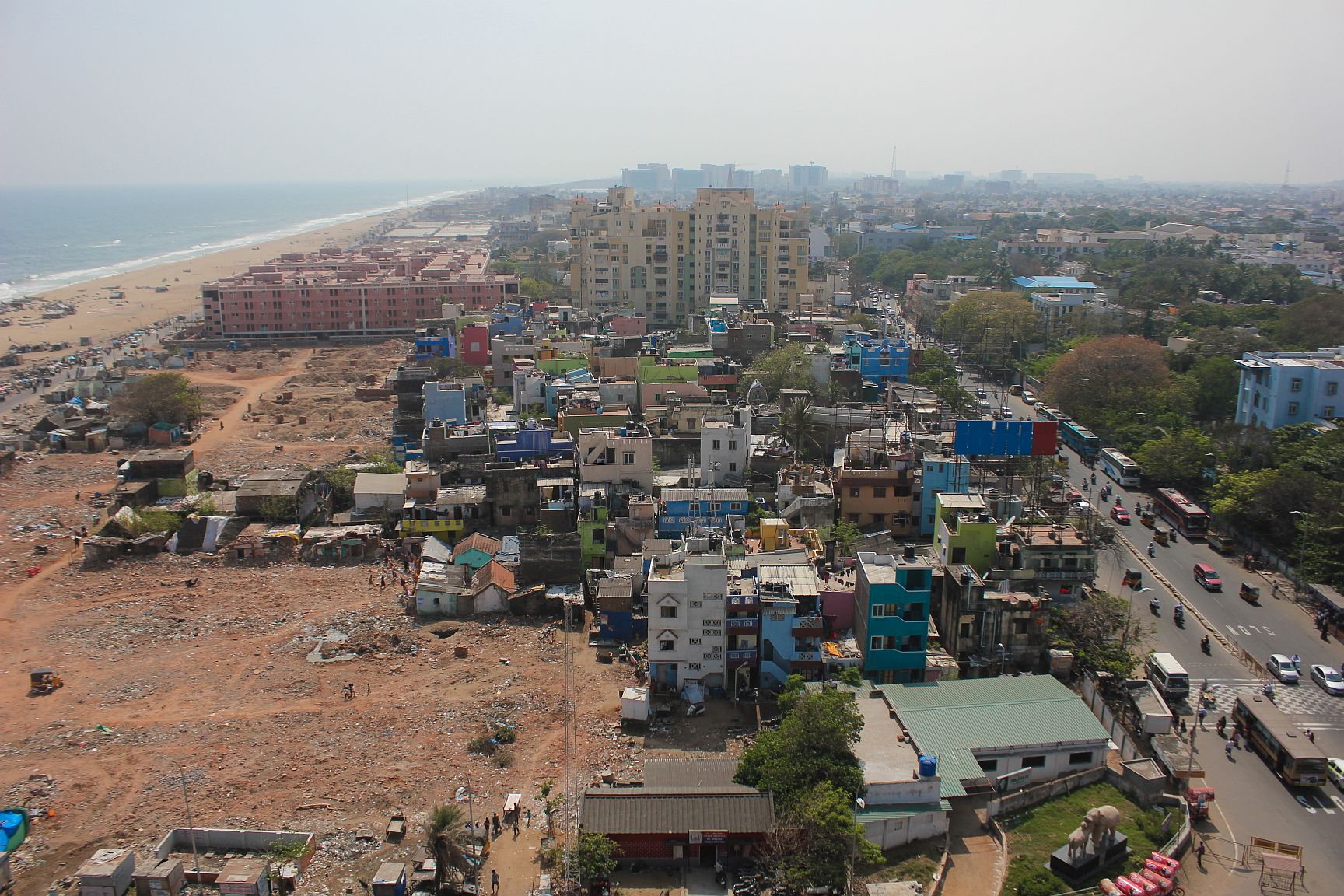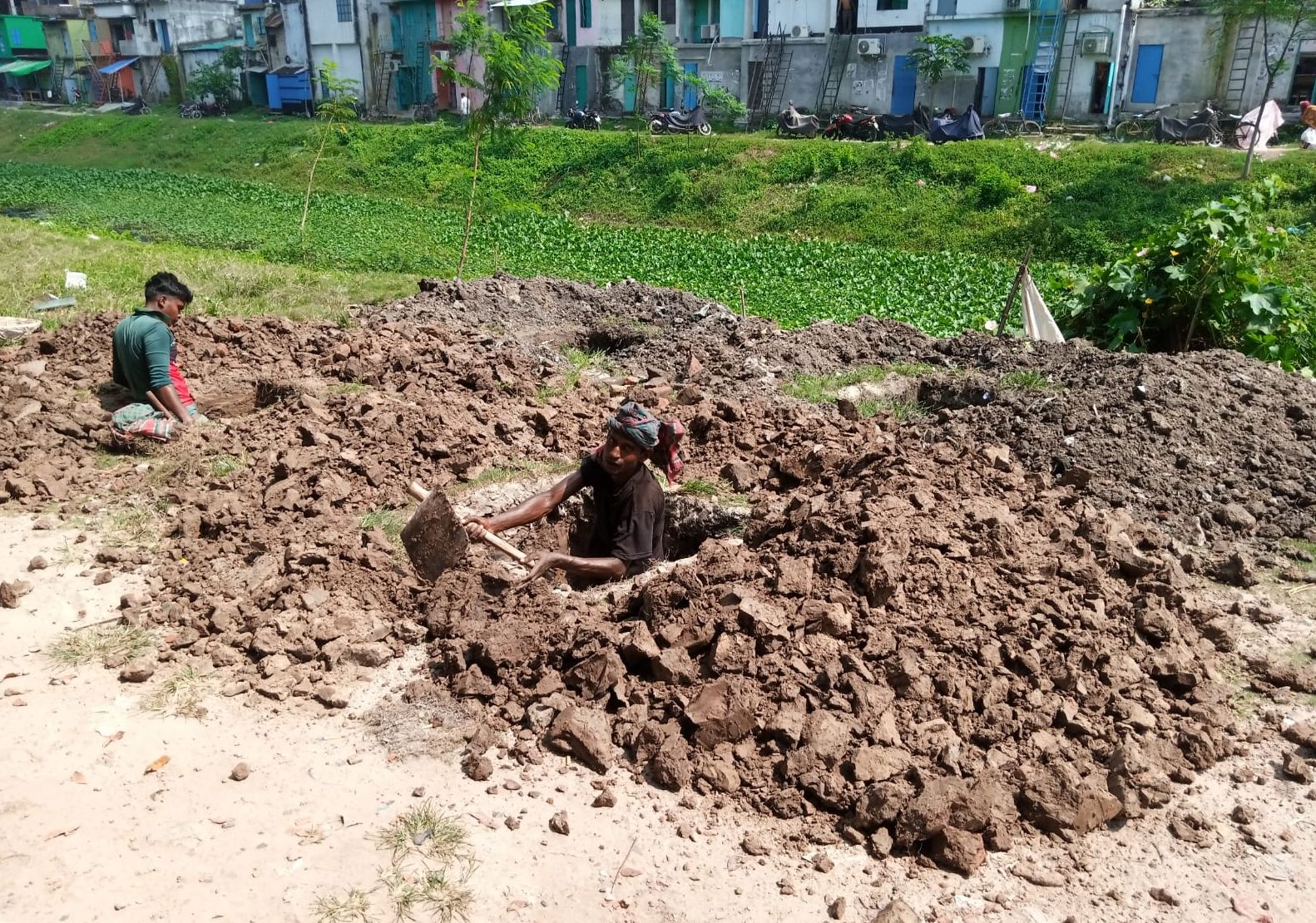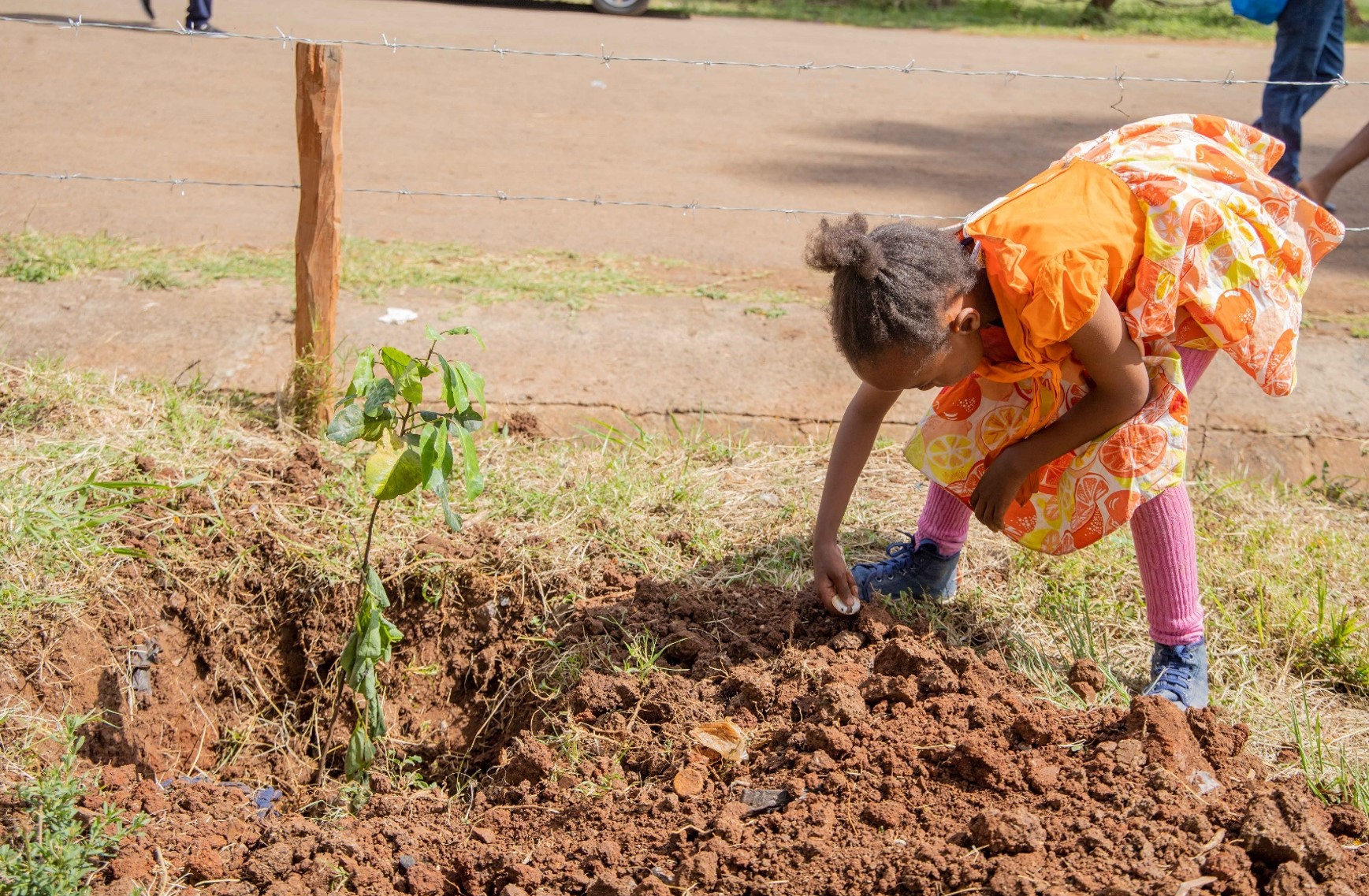This article was first published on URBANET
In India, 461 million people are living in urban areas – about 17 per cent of them in dense, informal settlements. Rapid urbanisation and insufficient infrastructure have led to poor living conditions in these areas. Most of the settlements consist of self-constructed housing using a variety of built forms and traditional construction methods that lack sufficient cooling mechanisms. With indoor temperatures often reaching 40°C, residents suffer intense heat stress, resulting in inadequate rest and sleep.
Primarily, women dwellers are affected by sleep deprivation as they often have to wake up much earlier than most household members to fetch water from municipal taps and prepare meals for their families.
When exposed to prolonged heat stress over an extended period, they are at risk of suffering from more serious health damage, such as dehydration or heart attacks.
Furthermore, the majority of the residential buildings in the informal settlements are poorly ventilated and lack natural ventilation. During the summer months, frequent power cuts exacerbate the situation, making living conditions particularly hard for women, infants, and elderly people who spend a lot of time indoors.
Innovative Cooling Solutions – Tackling Extreme Heat Stress in Tamil Nadu
As part of the ideas competition Cities CHALLENGE 2.0, the Deutsche Gesellschaft für Internationale Zusammenarbeit GmbH (GIZ) has commissioned the solutions hub cBalance to become active in the Indian state of Tamil Nadu. The project involves the implementation of passive cooling design solutions and mechanical operation mechanisms for community buildings in the two cities, Chennai and Coimbatore, both located in the Federal State of Tamil Nadu. The project is carried out in partnership with national and local governments as well as academic and other institutions dealing with housing and building materials.

Within the framework of the Cities CHALLENGE 2.0 initiative, an Urban Living Labs approach was utilised to select five buildings suitable for transformative action at the local level. The selected buildings are known as Integrated Child Development Schemes (ICDS) and benefit from thermal comfort. Three of those ICDSs are in the neighbourhoods of Perumbakkam and Kannagi Nagar in Chennai, while the other two are situated in the rapidly developing residential suburb of Vellalore in Coimbatore.
ICDSs are run by welfare associations and provide care for pregnant women and newborns as well as teaching facilities for children under the age of six years who are not yet attending a formal school. The purpose of this project is to address the extreme heat stress caused by these buildings, which affects the physical and mental well-being of domestic workers, teachers, and other staff members, as well as young students and their parents.
The long-term goal is to achieve a heat reduction of at least four to five degrees Celsius inside the buildings.
Reversing Heat Transfer: The Chain Sprocket Mechanism
Innovative solutions, appropriate building materials, and technology have already proved positive results in reducing energy requirements, mitigating potential greenhouse gas emissions and cost-effectively achieving this. For example, dynamic mechanisms such as the “Chain Sprocket” act as a radiant barrier which delays the heat from entering the building. Throughout the day, the temperature inside the buildings slowly increases so that by evening, the interior is hotter than the outside. “However, when the Chain Sprocket mechanism is opened and exposed to the sky, the heat transfer gets reversed, and the structure gets cooled fast during the night”, explains Vivek Gilani, Managing Director of cBalance.
The Chain Sprocket mechanism functions on the principle of blinds where all panels open and close simultaneously. The movement works with the help of a chain and several sprockets, which can be operated by a bicycle pedal to enable dynamic motion in both directions. “This mechanism can use either Alufoil or Ecoboard material. Alufoil has foam on one side and a layer of low-emissivity and high-reflectivity aluminium foil on the other, whereas Ecoboard is a multi-layer board made of compressed recycled material such as tetra packs”, says Vivek.
Green Cooling Solutions for ICDSs Using Recycled Materials
Another solution to reduce indoor temperatures in the selected ICDSs is rooftop gardening. This installation provides shade as local vegetation is cultivated on the roof in diverse ways, such as in pots, brick beds, wooden crates or grow bags. Additionally, the soil reduces the heat that penetrates through the roof and releases it again at night once the atmosphere cools down.
Vivek Gilani explains, “Alternatively, discarded PET bottles are filled with water and fixed on the rooftop. The bottles increase the thermal mass of the roof and its ability to store heat for a longer period before letting it seep into the house through the day.” Since the warmed-up water from the day gets cooled during the night, the bottles reverse the heat transfer process, keeping the roof cool the next morning even when the sun starts heating up. A third option is to install an eco-friendly panel made from wood wool, cement, and water underneath the roof. The Wood Wool Panel not only creates a heat barrier but also stores heat from the ambient air and emits it when the air temperature falls.

All cooling solutions described have been tested in informal housing settlements in Shinde, Pune, and Jyothipura, Bangalore before. Results from these projects indicate a solid reduction in indoor temperatures within five months after installation.
A Larger Vision
After completing all installations, cBalance will continually monitor the effectiveness of the cooling solutions across different seasons and years. To verify progress regarding thermal comfort improvement, sensors are installed periodically to track temperature changes. The project findings will be used to advocate for policy change, ensuring that beyond selected community facilities more people can benefit from the improvements.
The larger vision also includes integrating these effective solutions into private housing schemes. In the long run, community members of the informal settlements – especially women – could be identified and trained to establish small enterprises for marketing these solutions. Another idea is to train local craftsmen to conduct the different cooling mechanisms within their communities themselves, thus showcasing the exemplary approach of the Cities Challenge 2.0 and the Urban Living Labs. With this approach, small-scale projects at a local level are transferred to other cities and communities and eventually contribute to big-scale goals at a much larger level.
The Cities CHALLENGE 2.0 is an initiative led by the Deutsche Gesellschaft für Internationale Zusammenarbeit GmbH (GIZ), in partnership with Cities Alliance and UN-Habitat. It aims at piloting innovative solutions for sustainable planning and building and contributing to the creation of climate-adapted, connected, and liveable neighbourhoods.





